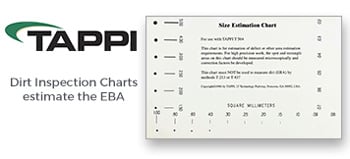Removal Of Mineral Oil During Recovered Paper Processing, 2013 PEERS Conference

Please Note: This document will be available in PDF format in the "My Electronic Documents" link on the home page once your order has been completed. Please make sure you have the latest version of Acrobat Reader. Click on the Acrobat Reader icon to check for the latest version, it’s FREE. To print a hardcopy of a PDF file correctly you must have a postscript printer. If you are not sure if your printer is a postscript printer please refer to your owner’s manual.
Purchase of electronic (downloadable) documents made at www.tappi.org by credit cards, followed by instant download CANNOT be cancelled. We do not offer refunds on electronic download documents.
Latest investigations proved that foodstuffs packed in recycled cardboard packaging like cereals, flour, rice, noodles, and even chocolate from advent calendars may contain high amounts of mineral oil components which are suspected to pose risks to human health. These mineral oil components are mainly constituents of printing inks used in offset coldset processes. Due to their high volatility these substances are capable to migrate from the recycled packaging into foodstuffs at ambient temperature. In order to meet future limits for migration, investigations on mineral oil removal during stock preparation were carried out. To this end, a flotation process and two different heat treatment processes prior to pulping were investigated according to their ability to remove mineral oils. For flotation a correlation between removal of mineral oils and inorganic particles could be found for all process chemicals used in this study. By optimization of chemical concentration and dosing sequence up to 80 % of mineral oils could be removed while keeping the total losses smaller than 15 %. The heat treatment processes achieved mineral oil removal rates that were in some cases even higher than those for flotation. For these processes the most important parameters appeared to be the specific energy applied, the temperature, and the particle size distribution of recovered paper components. However, the specific energy consumption was quite high.





